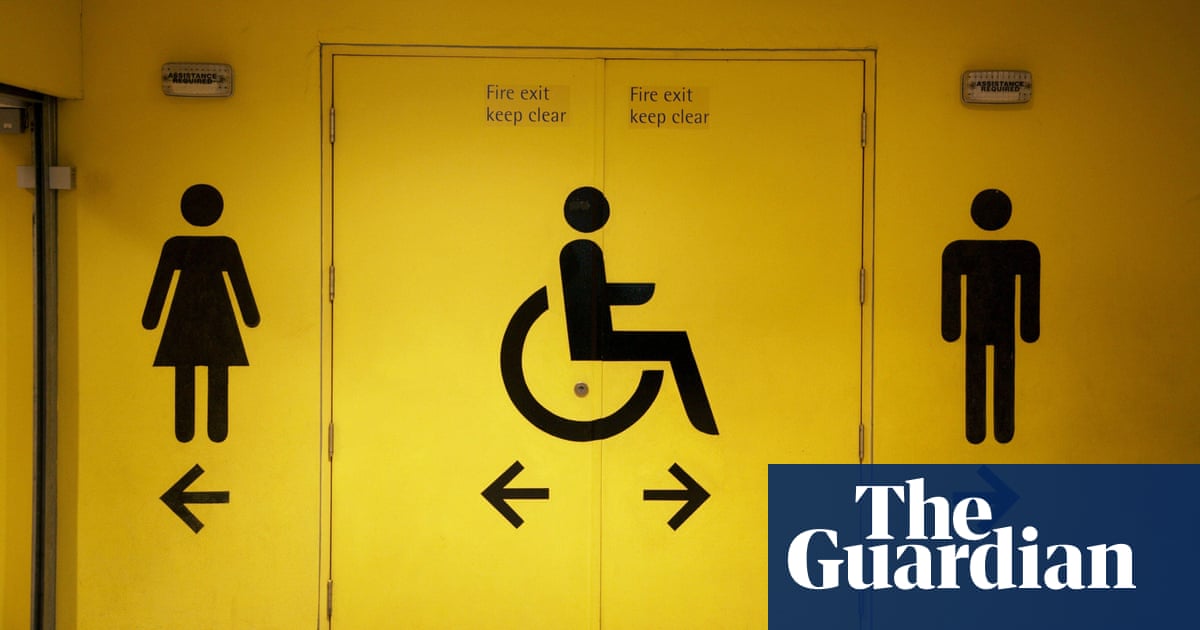A UK government minister has said that trans people are now banned from using toilets of the gender they identify as, amid warnings about the “incredibly dangerous” consequences of such a blanket prohibition.
The UK supreme courtruled earlier this monththat the terms “woman” and “sex” in the Equality Act refer only to a biological woman and to biological sex.
Inan ‘interim update’on how the ruling should be interpreted, the Equality and Human Rights Commission said on Friday that in workplaces and services open to the public, such as hospitals or cafes, “trans women (biological men)should not be permittedto use the women’s facilities and trans men (biological women) should not be permitted to use the men’s facilities.”
Asked if the latest update meant transgender people would be banned from using the toilets of the gender they identify as, Cabinet Office minister Pat McFadden told the BBC’s Sunday with Laura Kuenssberg: “There isn’t going to be toilet police. But that is the logical consequence of the court ruling and the EHRC guidance.”
The commission’s update stated that if a trans individual used a facility that aligned with their chosen gender, “this will mean that they are no longer single-sex facilities and must be open to all users of the opposite sex”.
The interim advice from the equalities watchdog, which comes ahead of updated guidance and a code of practice expected by the summer, also stated that “where facilities are available to both men and women, trans people should not be put in a position where there are no facilities for them to use.”
The supreme court ruling was described as “a massive relief” by the campaignerswho brought the legal challenge, For Women Scotland. Its co-founder Susan Smith told the Guardian it would help women feel safe if there was a male in a female-only space: “They will know that they are well within their rights to object to that.”
Christine Burns, one of the UK’s best known trans rights advocates, said a blanket ban on trans women using women’s facilities was “an incredibly dangerous statement, given that they give no indication how that should be enforced”.
Burns, who was instrumental in the campaign for gender recognition in the UK, said the commission was “making service providers the enforcers. Without training, it means their staff will be sent out to use their imagination as vigilante toilet police.”
Burns added that “the idea that a trans woman using the facility would magically downrate it to ‘mixed sex’ was not tested or confirmed law.”
“But the point is that if the idea gets out there among employers, service providers and their cautious corporate lawyers, then it will become the received wisdom. The eventual official guidance may be more tame but the damage will be done.”
Green co-leader Carla Denyer said her party was calling for the EHRC interim update to be withdrawn because it seemed “rushed”.
Also speaking on Sunday with Laura Kuenssberg, Denyer said: “Clearly, it’s been ill-thought out, and it’s really obvious that they have not listened to trans people, possibly not consulted them at all in the in the preparation of this guidance.”
Sign up toFirst Edition
Our morning email breaks down the key stories of the day, telling you what’s happening and why it matters
after newsletter promotion
“I think it’s quite clear that it will create the risk of discrimination, direct and indirect, against trans people, especially in workplaces.”
On the same programme, the Liberal Democrat leader,Ed Davey, also expressed worries about the repercussions of the court ruling, saying there should be Commons debates to look at these.
One issue yet to be resolved, he argued, was the inference that transgender men should use women’s toilets, as that was their birth sex.
“First of all, would a trans man want to use that woman’s toilet?” he said. “And secondly, if they go into that woman’s toilet, that could cause some anxiety, obviously.
“And even worse than that, because safety should be the core of how we test these different guidelines, would that mean that a man could go into a woman’s toilet and say, ‘Oh, I’m a trans man’? That would cause even more worries”.
Amnesty UK, which intervened in the supreme court case, intends to write to the commission expressing concern about the brevity of consultation period offered on the code of practice, which is only two weeks.
The EHRC points out there has already been a three-month consultation on the full code, but the significant redrafting demanded by the supreme court ruling merited a shorter consultation.
